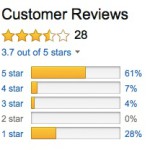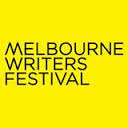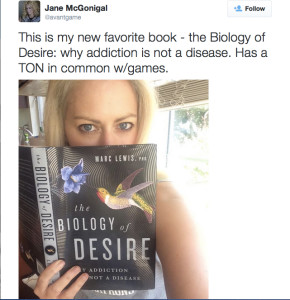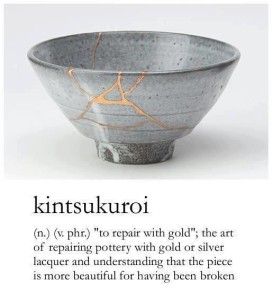Nobody’s right if everybody’s wrong. Do you remember that song from the late sixties? By Buffalo Springfield? Anyone else that old? Here, have a listen.
 I’ve been in Australia for about three days. I say “about” because I truly can’t keep track anymore, though I could look it up. I dreamed that I was in Arabia for a while on the way here, but there must be a logical explanation, like I was having an astral projection or something. And yet…look what I found on my camera:
I’ve been in Australia for about three days. I say “about” because I truly can’t keep track anymore, though I could look it up. I dreamed that I was in Arabia for a while on the way here, but there must be a logical explanation, like I was having an astral projection or something. And yet…look what I found on my camera:
I actually woke up the other day, looked around at the standard hotel-room features and had no idea where I was. The feeling lasted about 20 seconds and I just let it be, enjoying the novelty of it. Australia evokes that readily because it seems like such an arbitrary continent. Aussies, please forgive me, and I’m sure many people feel this way about Canada, but the sense is: What’s this place doing here? Who put it here?
 The Aussies are good to me. After my talk at the Melbourne Writers Festival, I was told that my book was the best
The Aussies are good to me. After my talk at the Melbourne Writers Festival, I was told that my book was the best  seller of the whole Festival — except for a children’s book that apparently didn’t count. That’s a beautiful thing. And there was a supportive Q&A just published in the Australian version of The Guardian, and other positive reviews online and in the press. All in the Mind, a radio show on ABC (A is for Australian) just aired this nice podcast connecting my views with those of Gabor Mate, whom I respect, not to mention Tom Waits.
seller of the whole Festival — except for a children’s book that apparently didn’t count. That’s a beautiful thing. And there was a supportive Q&A just published in the Australian version of The Guardian, and other positive reviews online and in the press. All in the Mind, a radio show on ABC (A is for Australian) just aired this nice podcast connecting my views with those of Gabor Mate, whom I respect, not to mention Tom Waits.
And I’m still getting some great publicity from other lands. Jane McGonigal (@avantgame) has 130,000 Twitter followers and here’s a recent tweet from her. She’s a trend setter when it comes to the impact of IT on people’s thinking and behaviour, including the influence of video games on…just about everything. And look what she says…
But all this praise is only half the story. The forces of darkness have been gathering. I’ve gotten some of the nastiest reviews I’ve ever seen, ever even imagined. I’ve been called quite a few names, the mildest of which was “zealot” in the Washington Post. That review was moving along nicely until the writer, , got in touch with her reserves of….I guess contempt:
But despite the legitimizing heft of brain science, romanticizing the addict and turning recovery into a heroic narrative seems one of the central and unsettling aspects of Lewis’s perspective. When he writes that addiction is a “vivid instance of the role of suffering in individual growth,” he seems to imply that addiction is not just not a disease but noble. Addicts become heroes and addiction their heroic vehicle. It is difficult not to see this as a way of inserting himself, as an addict, into the story, while playing down the staggering social costs of addiction.
At least that’s marginally rational. Do I really think addiction exemplifies nobility or heroism? Well, no, actually. But I do see people’s determination to quit, and their sometimes long drawn-out battles to do so successfully, as worthy of real admiration. I see those efforts as courageous and maybe even heroic. But that’s an entirely different point.
And this business about “inserting myself, as an addict” into my writing… Sure I do, but how is that wrong? A few have argued that Lewis just claims addiction is not a disease because he got over his. So, let’s see, that was sure easy. What’ll I do for excitement next weekend? Maybe that’s what Ms
But some of the nastiest criticisms come from the pages of Customer Reviews on Amazon.com. One had this to say:
I will not buy another piece of garbage from this author after having wasted time and money on his last self-aggrandizing, narcissistic, egotistical piece of trash… This guy is a snake-oil salesman, a charlatan, a quack, sham and fraud masquerading as a neuroscientist interested in advancing the field of Addiction Recovery. He may have conquered his addictions, though he admits he still drinks alcohol, but he hasn’t given up the behaviors that he learned as an addict…
At least he or she isn’t pulling any punches. Other negative reviews are just as silly or rude, or too dumb to be upsetting. But there are a couple that get to me. Like the guy (I assume it’s a guy) who said…
He reminds me of a nurse I worked with on a hospital inpatient detox unit. He felt that when he was addicted to drugs, he stopped on his own without treatment, so he spent his time abusing the patients on the unit for not helping themselves. He was ultimately fired for his involvement in a patient suicide on the unit. Lewis needs to read a good work on Phenomenology to learn to bracket his experience when studying another’s addiction.
The problem is that it almost sounds rational, and it’s just so damn ugly. Although I’ve been told repeatedly — especially by Isabel — never to respond to negative reviews, I just had to reply to this one. I was almost civil. Now that’s heroic.
 So here’s the net result — so far. Quite a few people really like the book. And a pretty large proportion — at least of those moved to write customer reviews on Amazon — hate it with a passion. Yet it seems to me they hate it for different reasons. Some oppose it because they think it’s so obviously wrong and others because they think it’s so obviously right that anyone could have written it. Go figure.
So here’s the net result — so far. Quite a few people really like the book. And a pretty large proportion — at least of those moved to write customer reviews on Amazon — hate it with a passion. Yet it seems to me they hate it for different reasons. Some oppose it because they think it’s so obviously wrong and others because they think it’s so obviously right that anyone could have written it. Go figure.
I’m not deeply upset by the criticism — either the stupid attacks or the cleverly devised barbs. It’s part of the game, I know, and controversy — even animosity — helps publicize ideas and sell books. I just thought I’d let you know how it’s going out here.
And by the way, if any of you folks feel like writing a flattering customer review on Amazon, nobody’s stopping you. But if you say anything even slightly negative, I know where to find you.
“Mostly say hooray for our side”



Leave a Reply to Ron Cancel reply